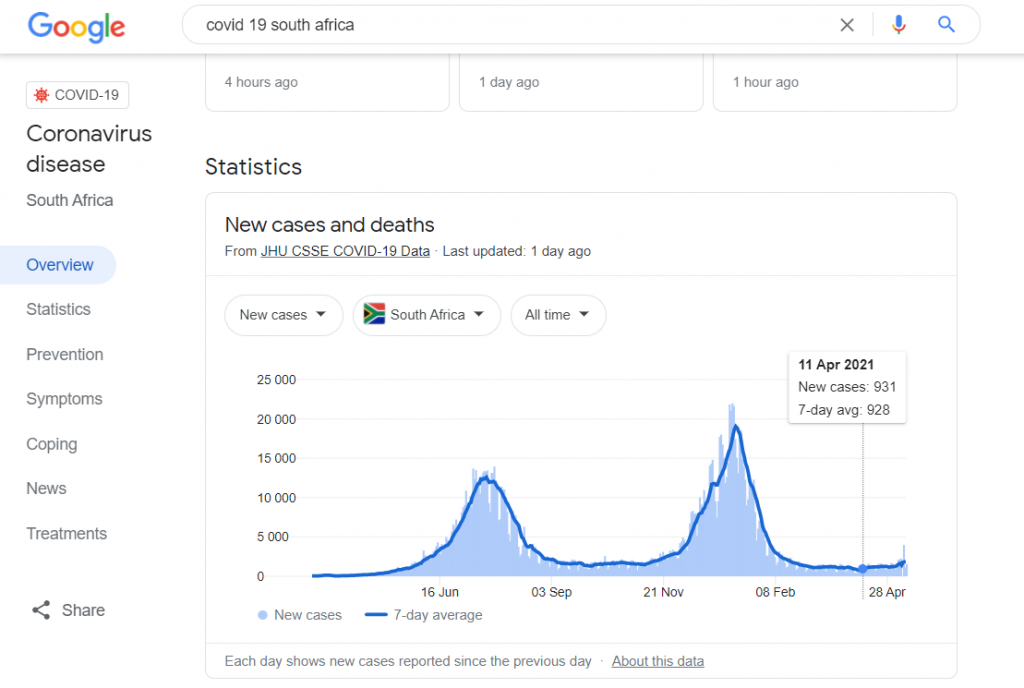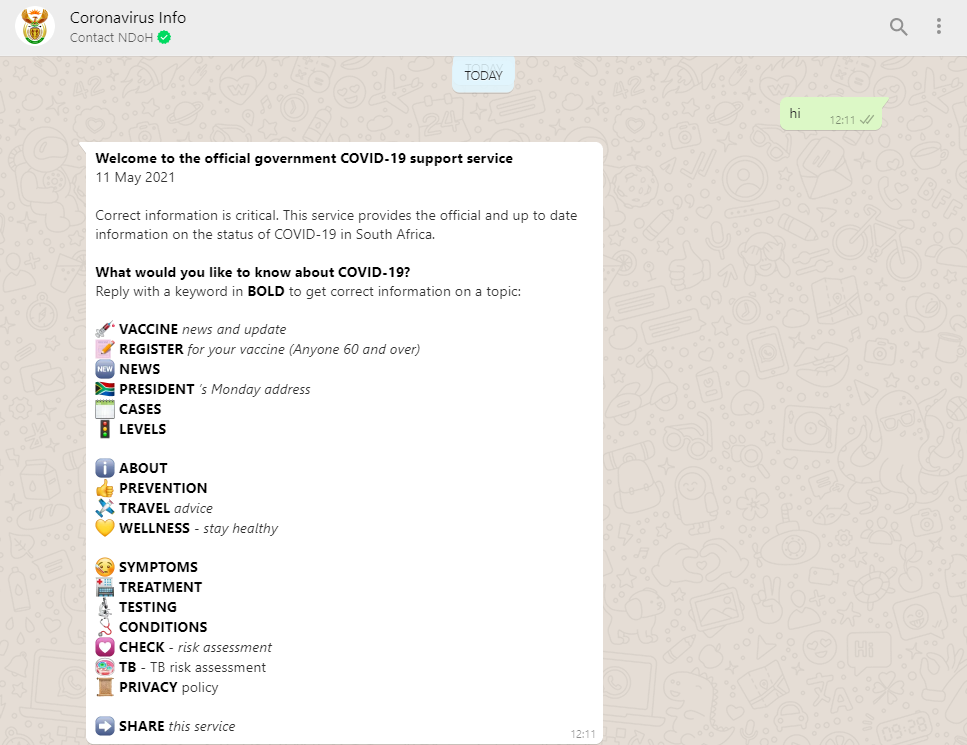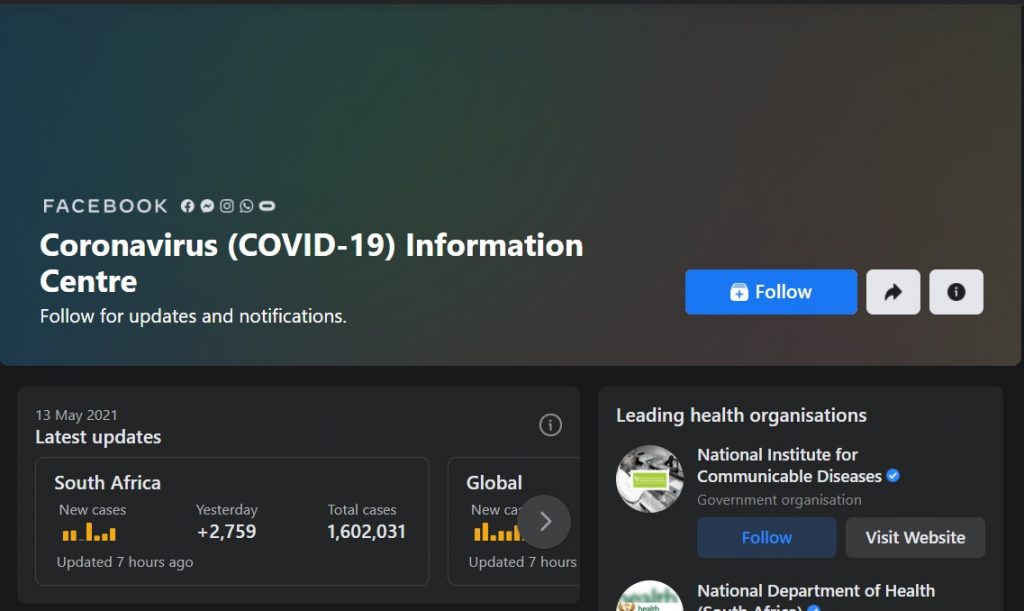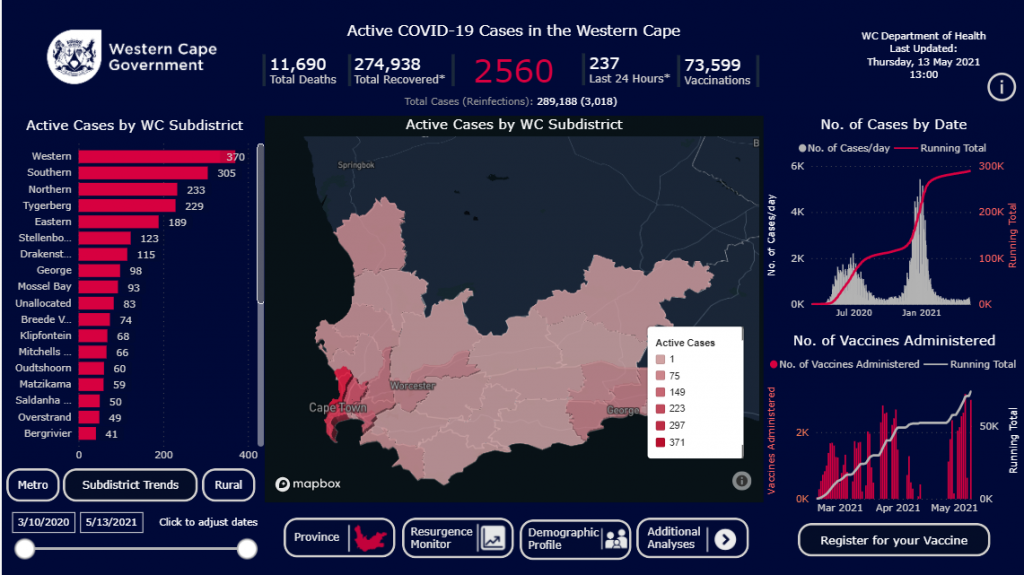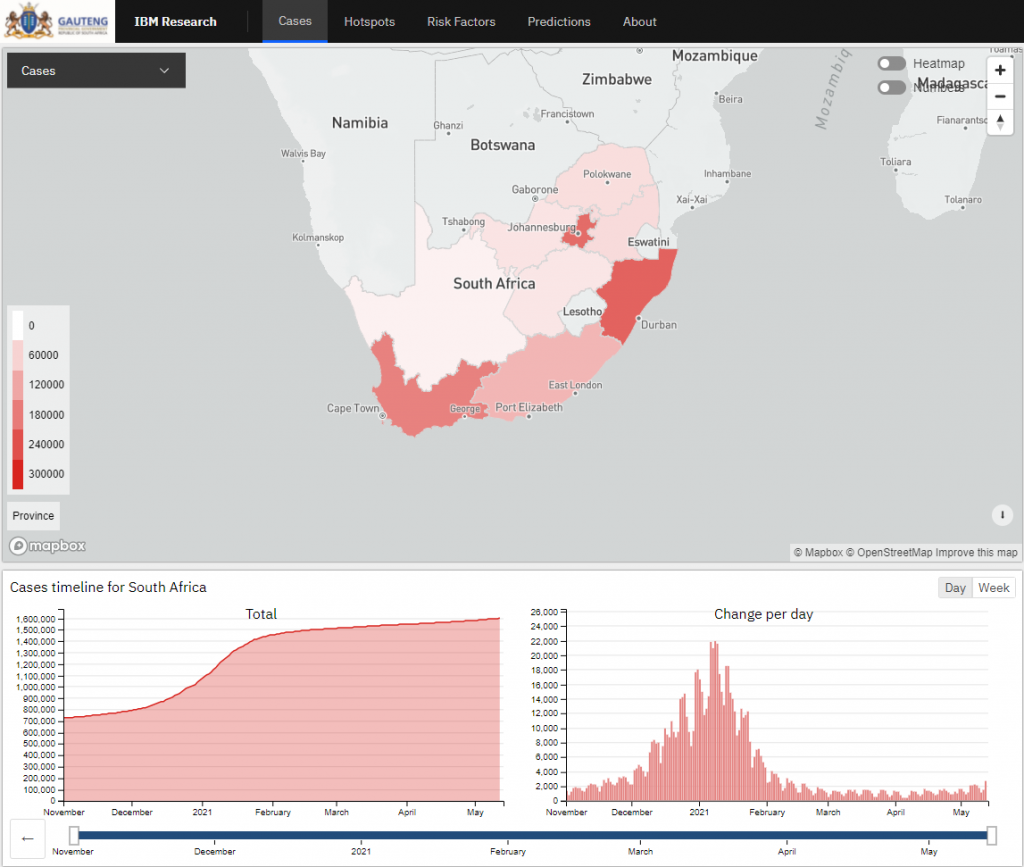Elon Musk’s AI chatbot Grok has once again found itself at the centre of controversy after the most recent update to Grok 3 triggered…
How to easily keep track of COVID-19 cases in South Africa

Early in the pandemic, it was more difficult to keep track of new or active COVID-19 cases in South Africa. However, there are now a variety of tools that make finding this information accessible and easy.
Here is a roundup of tools that can help you keep up-to-date with trends, as well as new and active cases.
1. Google dashboard for COVID-19 in South Africa
The Google dashboard for tracking COVID-19 in South Africa is one of the most easily accessible tools available. You simply need to Google the term “COVID 19 South Africa”.
This brings up a summary of the latest local news articles related to the pandemic, as well as a graph to track new cases.
The graph showing statistics is particularly useful, since it doesn’t just show cumulative cases. Rather, it gives you a way to identify trends and compare new cases over time. You can also change the graph filters to look at different periods, such as the past 30 days, two weeks, or seven days.
2. South African Government COVID WhatsApp service
If you prefer to automate your updates on COVID-19 cases in South Africa, you can sign up for updates using the Department of Health’s WhatsApp account.
The service lets you sign up for weekly updates regarding cases and other important news.
You are also able to send messages for an update on case numbers and daily new cases. While total cases are split by province, this is the overall number rather than the active or new cases total.
Benefits of the WhatsApp service include the ability to stay up-to-date with vaccine news, register for the vaccine, and the ability to complete risk assessments.
You can add the service on WhatsApp as a contact with the number 060 012 3456. Send a message saying “Hi” to get started.
3. Facebook COVID-19 Information Centre
Facebook also includes its own dashboard and information centre for regional COVID cases. While it’s not as thorough as some other tools, it can be useful if you use the site daily.
You can find it in the left-hand menu, under your profile name on the Facebook website.
When you click on “Facebook COVID-19 Information Centre“, you’ll be taken to a page with new local cases, news updates, and suggested pages to follow.
You can also see new posts from important organisations, and click on the data for more in-depth statistics and charts.
Provincial COVID-19 dashboards
If you want a look at provincial data for new cases, the Western Cape and Gauteng dashboards offer the most advanced tools for tracking daily cases. Here’s a look at each…
4. Western Cape dashboard
The Western Cape COVID-19 dashboard is particularly useful for tracking active cases. It also provides a variety of visualisations for the data, including a heatmap, graphs, and district charts.
The tool even has a resurgence monitor. This tool tracks trends in rising cases to warn of a possible resurgence and new wave. It does this by comparing the percentage change in cases between the two previous weeks. A 10% week-on-week increase is a cause for alert. Meanwhile, a 20% week-on-week increase sustained for seven consecutive days is marked as a resurgence.
5. Gauteng dashboard
The dashboard offered by the Gauteng local government (and created by IBM) offers statistics for the province, as well as other regions in South Africa.
This includes active cases across South Africa and per province. However, it seems to be most accurate when it comes to Gauteng data.
You are able to zoom in to see heatmaps and more detailed insights for metros in Gauteng.
Feature image: Uriel Mont/Pexels
Read more: Online vaccine registration opens for general public in South Africa

